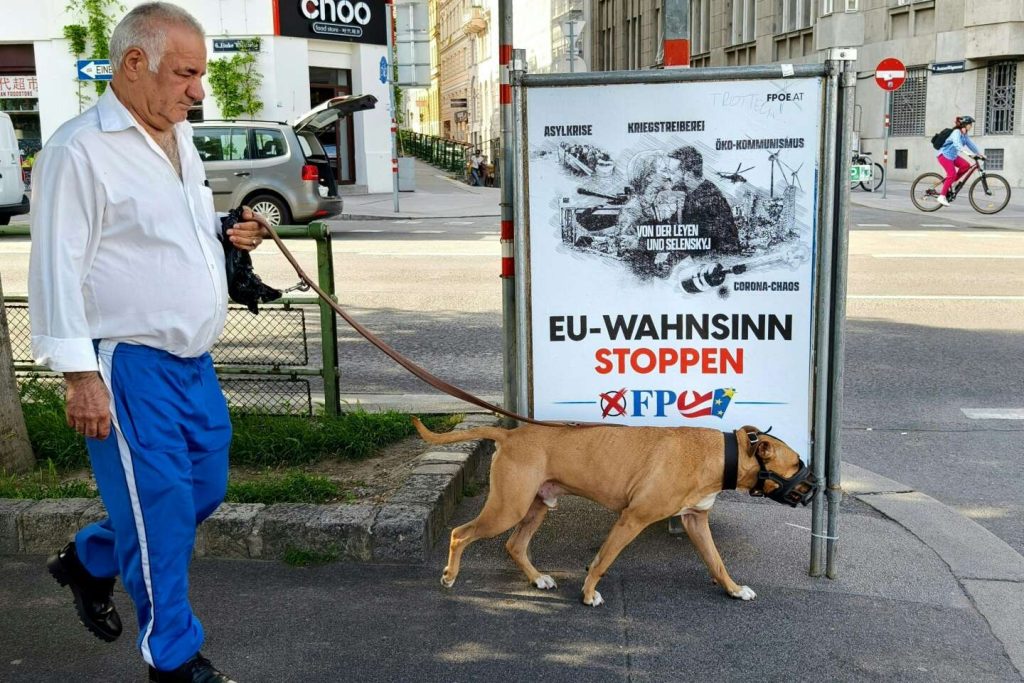The upcoming election in the 27 EU member states has seen a rise in far-right parties using divisive tactics to rally support. A common theme among these parties is their penchant for scapegoating, with traditional non-European immigrants being joined by a new target: Ursula von der Leyen, the President of the European Commission. Campaign stops in cities like Marseille, Bucharest, Florence, and Madrid feature von der Leyen as a regular target for criticism. Her presence in far-right visuals alongside other perceived enemies, traditionally depicted in black and white, serves as a unifying symbol across different parties.
One striking example of this phenomenon is the electoral poster by the Freedom Party (FPÖ) in Austria, featuring a drawing of Ursula von der Leyen kissing Ukrainian President Volodymyr Zelensky, accompanied by the slogan “Stop the madness of the EU”. This image is set against a backdrop of war-related imagery, as the FPÖ, an ally of the far-right Rassemblement National (RN) in France, calls for an end to what they see as EU aggression in the conflict in Ukraine. Hungary’s Fidesz party also takes aim at von der Leyen, depicting her alongside Alexander Soros, who continues the liberal legacy of his father, George Soros. In France, the RN includes von der Leyen and Emmanuel Macron in their campaign “Europe without them”.
The status of being a figurehead for the eurosceptic movement was solidified for von der Leyen as she seeks reelection. Hungarian Prime Minister Viktor Orban, whose Fidesz party aims to form a coalition to block von der Leyen’s nomination for a second term, has been vocal in his criticism. Tamas Deutsch, the Fidesz party’s lead candidate, has called for von der Leyen to be dismissed by June, citing concerns over her fitness for the role. The FPÖ’s lead candidate, Harald Vilimsky, has joined the chorus of voices warning that a second term for von der Leyen would be detrimental to the EU.
Italian politician Matteo Salvini has made von der Leyen’s leadership a key point of contention within his coalition. While Salvini’s League party has positioned itself against a second term for von der Leyen, his counterpart Giorgia Meloni has expressed a willingness to work with the German leader. These divisions within the far-right coalition illustrate the complexity of the political landscape in Europe as the elections approach. The use of von der Leyen as a lightning rod for criticism reflects the broader strategy of far-right parties seeking to capitalize on anti-EU sentiment and nationalist fervor among voters.


